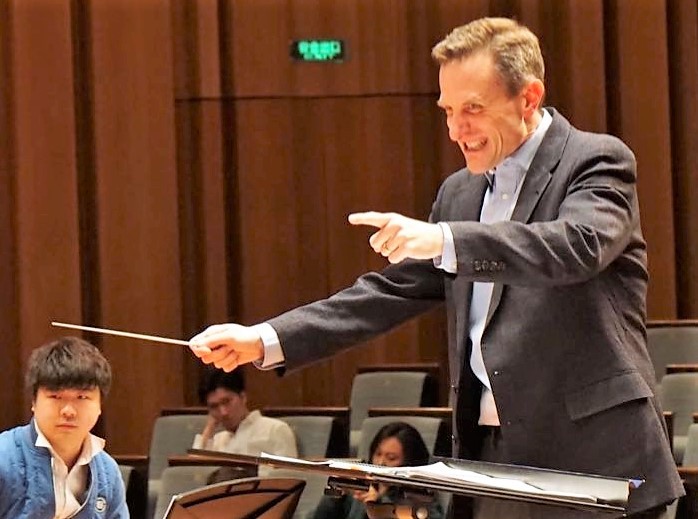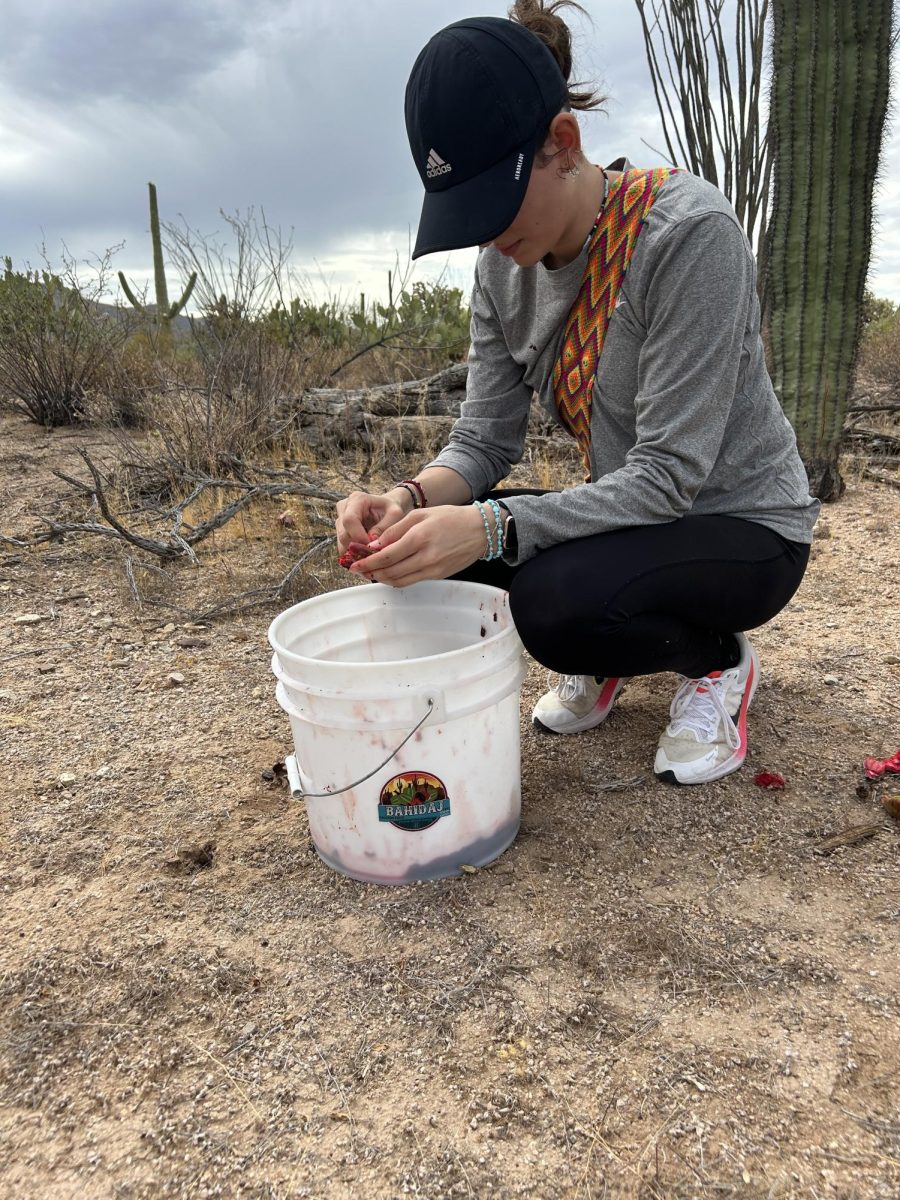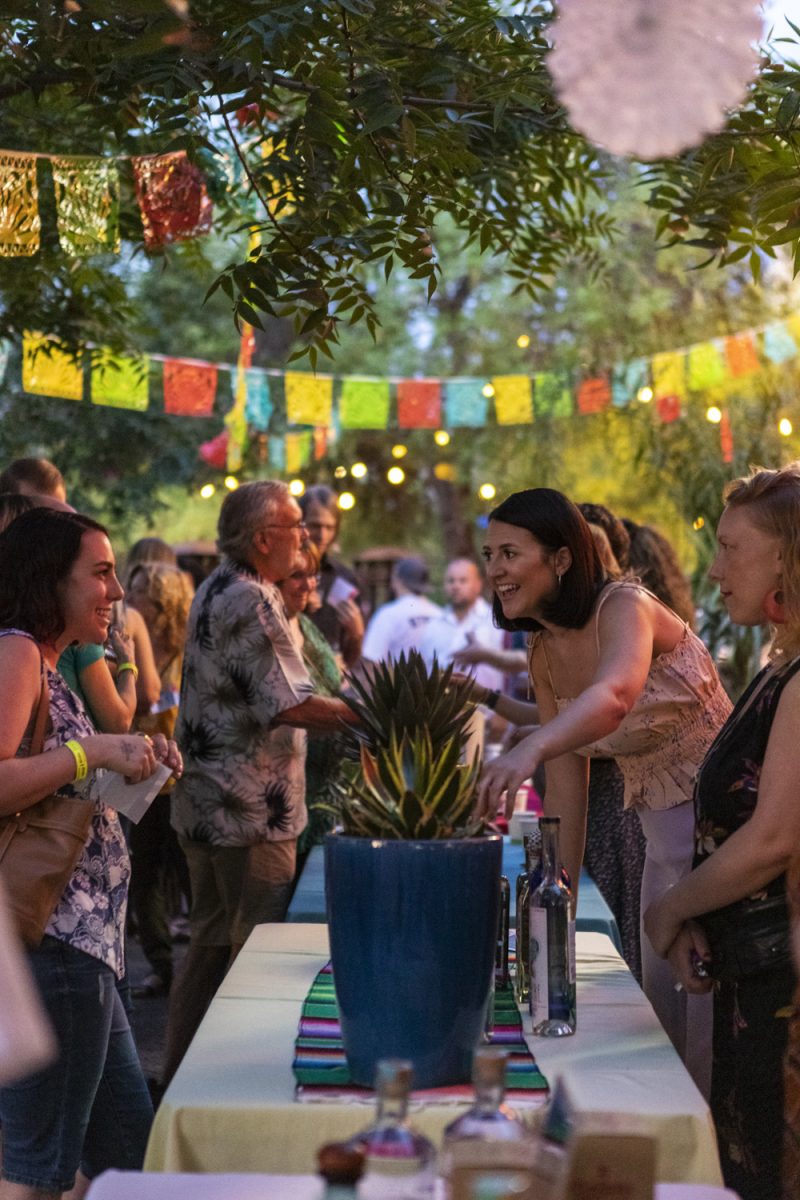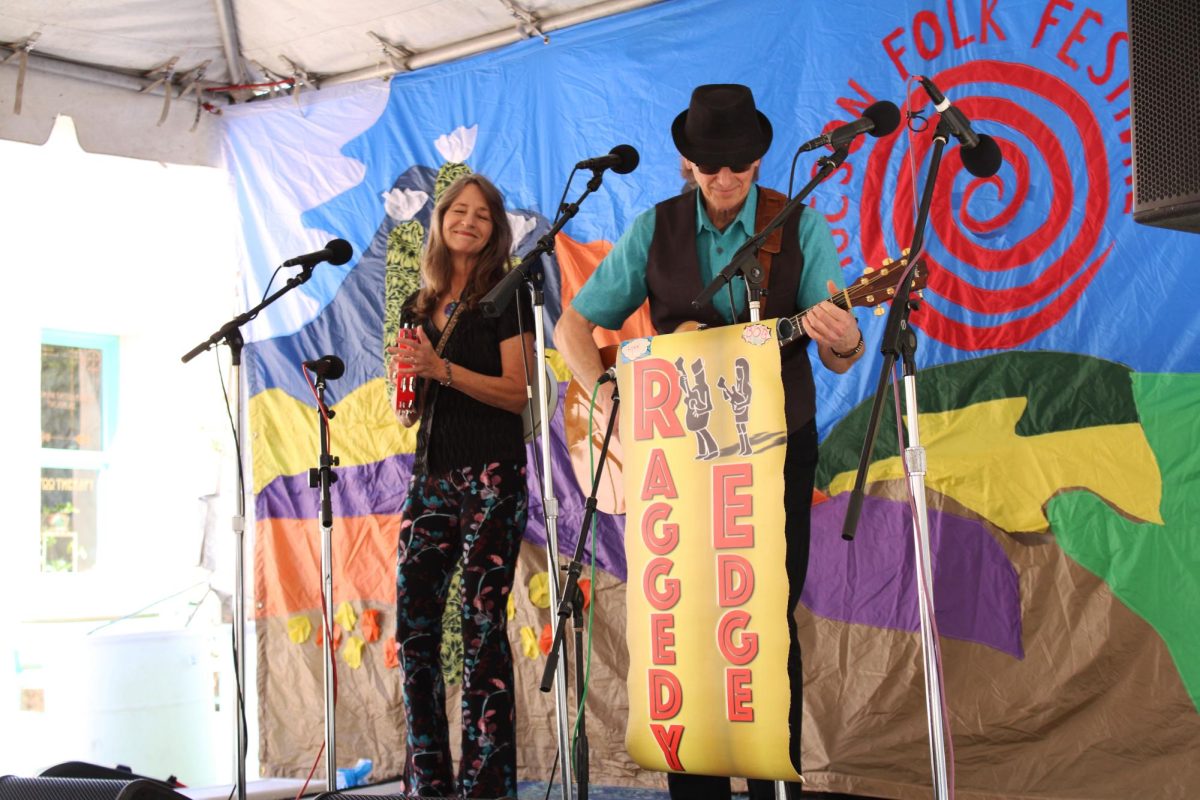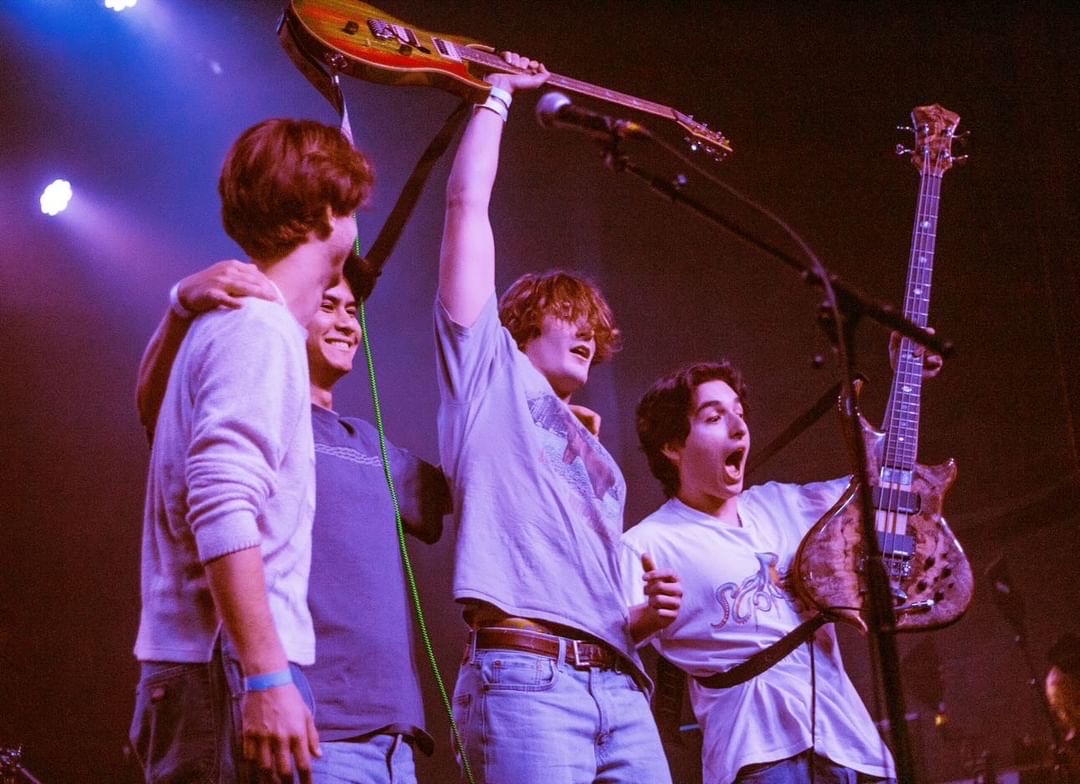Chad Nicholson, the University of Arizona director of bands and conductor of the UA Wind Ensemble, has been chosen as one of the nationally recognized guests at Carnegie Hall. Nicholson, along with the other guests, will provide workshops for multiple ensembles that will perform in Carnegie Hall’s Symphonic Series on June 17.
The Daily Wildcat sat down with Nicholson to talk about his previous performances and his feelings about his recognition at Carnegie Hall.
Daily Wildcat: How long have you been performing?
Chad Nicholson: This is my 23rd year as a conductor, so I have basically conducted at every level from middle school, high school, college, professional, orchestra, band, jazz, marching band, musicals and pretty much everything you can think of.
DW: What has been your most memorable performance?
CN: I’ve been conducting this professional ensemble in China for a few years now. First time I did that, I walked into the National Center for Performing Arts in Beijing during the warm-up, so it was just the ensemble and myself in this big empty hall. To be able to prepare for this on my side, learn the Mandarin language, learn how to communicate with these folks and to work with these professional players as well as to be held to the highest expectation because they expect the highest level of world class performance was absolutely exhilarating.
DW: Tell me a little about being one of the nationally recognized guests at Carnegie Hall?
CN: On the Carnegie Hall website, they do what they call the Symphonic Series for bands and orchestras. They invited the orchestra conductor from Michigan State University and me to come out and work with all of these ensembles and help get them to their peak performing level for Carnegie Hall. When they perform at Carnegie Hall, we will be giving them additional musical comments and feedback, so it highlights these great ensembles but also has an educational element. It feels pretty special to me, I have never gotten to do anything musically at Carnegie Hall before. It is special to go and basically help these performers reach the highest level that they possibly can.
RELATED: University of Arizona art professor recognized in ‘The New York Times’
DW: How did it feel to learn that you were one of the two chosen to be a nationally recognized guest at Carnegie Hall?
CN: In a way it’s hard to believe that a place that I have always heard about has my name on their website, it does feel really special. I was brought up in a very small town in Oklahoma on a race horse ranch, and the whole idea of even going to New York City one day, much less being in Carnegie Hall working with ensembles, was not something that I ever expected. I appreciate the opportunity because I realized that it’s one of those things that you work hard, try to do the best that you can in everything you do and you try to be a kind person and help people, so sometimes when these opportunities come up, you have to take a breath and say “Wow, this is one of those special things I never thought being a band director would lead to.”
DW: Are you excited to be providing private workshops for the ensembles?
CN: I am extremely excited to work with them. A lot of what I enjoy about being an ensemble conductor is the people because the people make the music, and we don’t teach band, we teach people. When people talk about college and high school students, they tend to get a bad rep, and I find them to be energizing, hopeful, intelligent, driven and creative. When I get to interact with these people, it allows me to create a personal connection with them and with the music. When I actually get to spend time providing the private workshops for the ensembles I want to give them something they can use forever, whether it’s in the rehearsal room or in life.
DW: What are you most looking forward too?
CN: I would say getting the chance to see these students through the process and then watching them go onstage at Carnegie Hall. As a musician and performer, I frequently get to do things that are exciting and unusual, but for these students, this is a once in a lifetime opportunity and to see how it all comes together for them is going to be the most special part.
RELATED: Q & A: UA alumna to purr-form in ‘Cats’ at Centennial Hall
DW: What advice would you give a UA music major who might want to be in your shoes someday?
CN: The best way to achieve at the highest level is to make sure that you are achieving at the most fundamental level every single day no matter what it is you’re doing. For me, teaching the middle school kids at my very first job definitely gave me the tools and foundation I needed to be able to build upon. You have to be extremely proficient at the very fundamental level every single day. That is what leads to the other types of high level performances and opportunities.
Follow Jamie on Twitter



